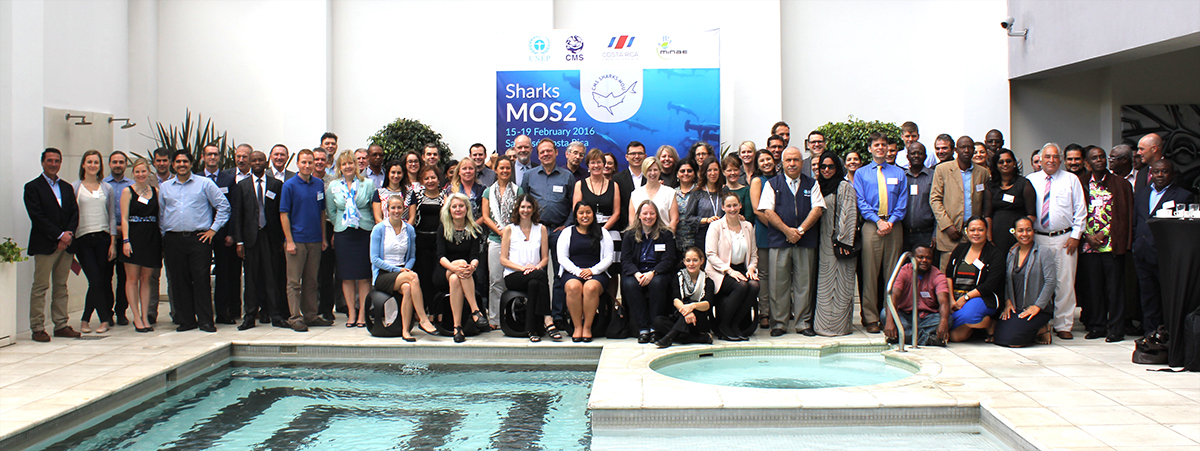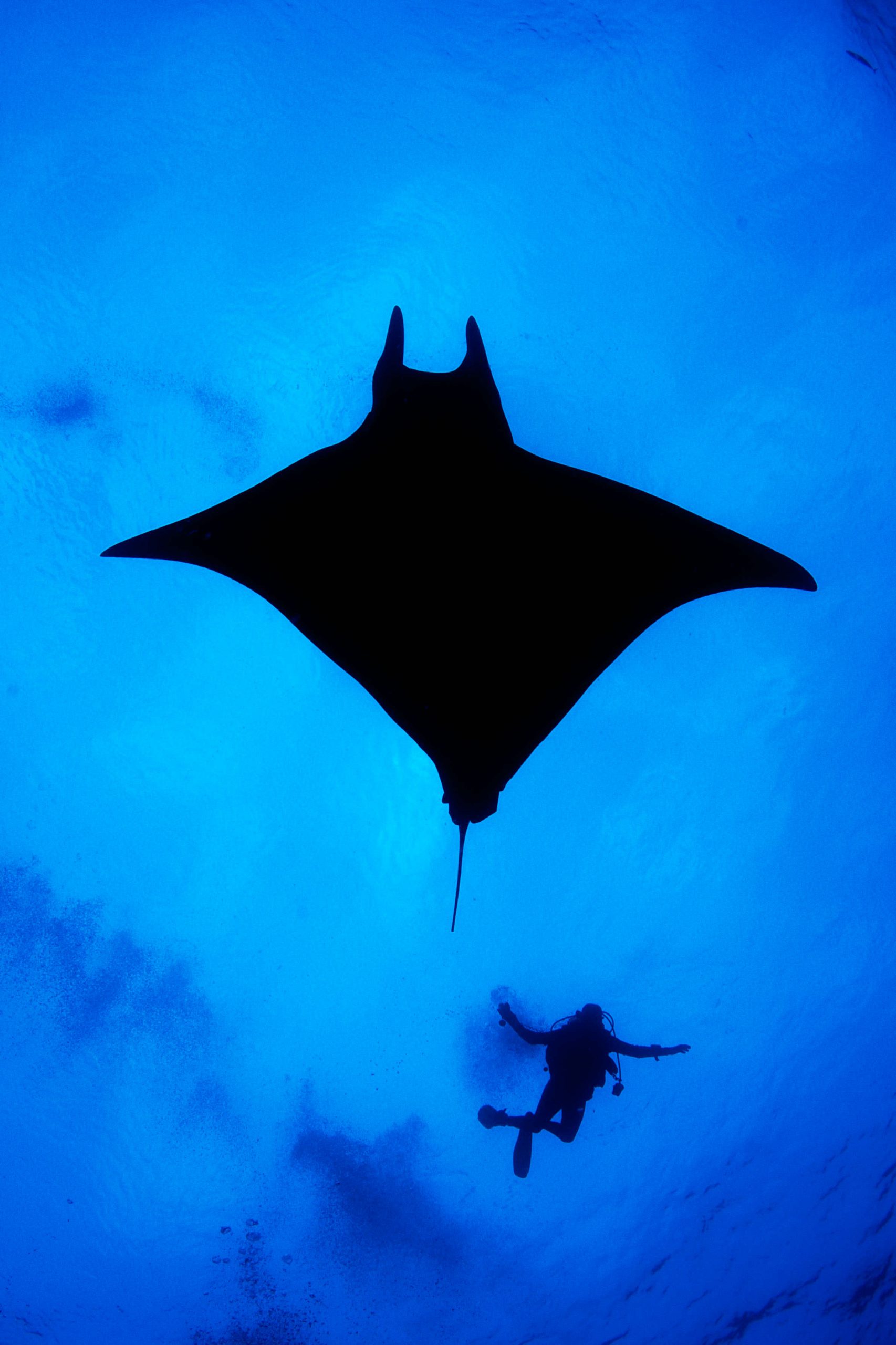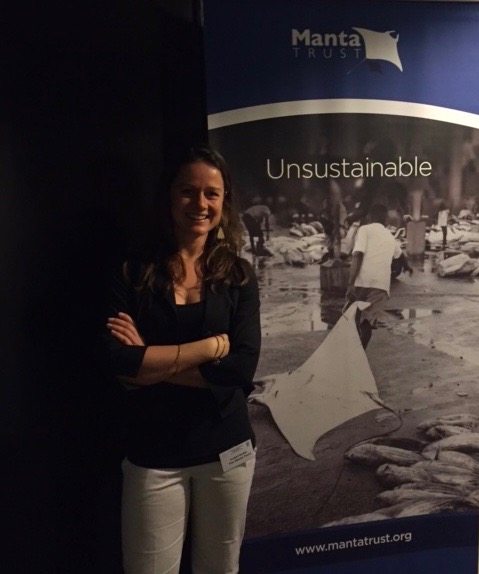Advocating for the devils
A significant milestone was reached last week when close to 40 Observers and representatives of governments and NGOs gathered in Costa Rica to set new conservation priorities and improve protection for migratory sharks and rays. The Manta Trust took part in this fantastic week-long conference, which represented the second meeting of the Signatories to the Memorandum of Understanding for Sharks of the Convention on the Conservation of Migratory Species (CMS Sharks MoU).

The Signatories, Observers and Cooperating Partners at the 2nd meeting to the Memorandum of Understanding for Sharks of the Convention on the Conservation of Migratory Species (CMS Sharks MoU), Costa Rica. © Photo Angeles Estrada| IISD
The Signatories agreed to add 22 new species of sharks and rays to the Sharks MoU, including all nine species of mobula (devil) ray, the reef and giant mantas, five species of sawfish, three of thresher shark, the silky shark, the great hammerhead and the scalloped hammerhead. Through this agreement, the Signatories show their commitment to developing objectives for these species and supporting research on them within and across national borders. Although not legally binding, the pact is a great step forward in increasing the protection of these species globally.

Devil ray tourism creates significant income to communities, such as in the Azores, Portugal. © Photo Tom Burd www.tomburd.co.uk
Sharks and rays are highly vulnerable to overexploitation and the rapid and largely unregulated increase in target fisheries and by-catch has depleted many populations of these species worldwide. Escalating demand for dried manta and mobula gill plates for use in Chinese medicine, as well as for meat and cartilage, has led to the targeting of these vulnerable species through fisheries that are largely unregulated and unmonitored. In the Indo-Pacific, local declines of 96–99% in mobula ray landings have been recorded.
The government of Fiji participated in this event and used the opportunity to advocate, raise awareness and gain support from the Signatories for its proposal to list mobula rays on Appendix II of the Convention on International Trade in Endangered Species (CITES), which is a global and legally binding agreement and a very powerful tool for regulating the trade in endangered species. A CITES Appendix II listing would complement CMS listings for all mobulid rays as well as CITES measures for Manta species. It would also encourage sustainable international trade in these species and safeguard tourism opportunities with them.

The Manta Trust’s head of conservation strategy, Isabel Ender, raised awareness for the plight of devil rays at the 2nd meeting to the CMS Sharks MoU. © Photo Rebecca Regnery
At this meeting, the Signatories also invited seven NGOs to become official Cooperating Partners to the Sharks MoU and thus help to achieve the objectives for the conservation of migratory sharks and rays. The Manta Trust is thrilled and honoured to be one of these Partners, alongside the International Fund for Animal Welfare, Project Aware, the Shark Trust, Shark Advocates International and the Wildlife Conservation Society. The invitation to be one of this select group is proof of our dedication and work to promote the protection of these species worldwide.
Leave a Reply
You must be logged in to post a comment.